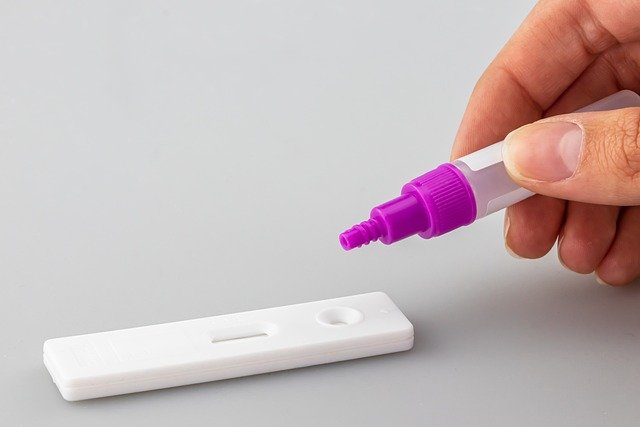Overview of sperm donation programs and their processes in New York
Sperm donation in New York plays a significant role in various medical donation programs aimed at helping individuals and couples facing infertility issues. This informative overview takes a detailed look at how sperm donation works, the criteria for donors, and the potential benefits for both donors and recipients. Understanding these aspects can provide valuable information for those considering participating in such programs.

Sperm donation plays a crucial role in assisted reproductive technology, helping countless individuals and couples build families when natural conception isn’t possible. In New York, several established programs offer comprehensive services for both donors and recipients. This overview explores how these programs operate, what potential donors can expect, and the journey recipients undertake when utilizing donated sperm in the Empire State.
Understanding the Basics of Sperm Donation Programs in New York
New York hosts several fertility clinics and sperm banks that facilitate sperm donation. These institutions serve as intermediaries between donors and recipients, ensuring medical standards are met and legal protections are in place for all parties. Sperm donation programs typically fall into two categories: known donation (where the donor’s identity is available to recipients) and anonymous donation (where identifying information remains confidential).
New York State has specific regulations governing reproductive medicine, including requirements for testing and screening of donated gametes. All sperm donation programs must comply with FDA regulations for tissue donation, which include infectious disease testing and risk assessment. Additionally, New York’s 2020 Child-Parent Security Act brought significant changes to the legal landscape of assisted reproduction in the state, providing clearer guidelines on parental rights and responsibilities in cases involving donated genetic material.
The Process and Requirements for Sperm Donation in New York
The journey to becoming a sperm donor in New York is rigorous and selective. Typically, only about 1-5% of applicants are accepted into donation programs. The process begins with an initial screening that includes age verification (usually between 18-39 years), medical history review, and preliminary health assessments. Candidates who pass this initial phase undergo comprehensive medical testing, including genetic screening for hereditary conditions, infectious disease testing (HIV, hepatitis, STIs), and semen analysis to evaluate sperm quality.
Psychological evaluation is another critical component of the screening process. This assessment helps ensure donors understand the implications of their decision and are emotionally prepared for potential outcomes. Additionally, donors must provide detailed personal and family medical histories spanning multiple generations.
Once accepted, donors typically commit to a regular donation schedule. After each donation, the sample undergoes processing, which includes washing, concentration, and freezing in liquid nitrogen for preservation. Most programs in New York require a 6-month quarantine period for donated sperm, after which the donor undergoes repeat testing before the samples are released for use.
Potential Benefits of Participating in Sperm Donation Programs
For donors, participation in sperm donation programs offers several benefits beyond financial compensation. Many donors report significant personal satisfaction in helping others build families. The comprehensive health screening process provides donors with detailed insights into their own genetic and reproductive health that they might not otherwise obtain.
Financial compensation varies among New York programs, with donors typically receiving between $100-200 per approved sample. Regular donors may earn between $1,000-1,500 monthly, depending on donation frequency and sperm quality. Some programs also offer additional compensation for donors who agree to be identifiable to offspring when they reach adulthood.
For recipients, sperm donation programs provide access to carefully screened genetic material from donors with diverse backgrounds, education levels, and physical characteristics. This allows recipients to select donors whose attributes align with their preferences. Most New York programs offer extensive donor profiles including medical history, educational background, physical characteristics, and sometimes even childhood photos or audio interviews.
Legal Framework and Rights in New York Sperm Donation
New York’s legal framework for sperm donation underwent significant changes with the implementation of the Child-Parent Security Act in February 2021. This legislation clarified the legal status of children born through assisted reproduction and established clear guidelines regarding parental rights. Under this law, sperm donors who work through established programs are not considered legal parents of any resulting children unless specifically agreed upon through proper legal channels.
Both donors and recipients are required to sign comprehensive consent forms and legal agreements before participating in donation programs. These documents address issues such as anonymity preferences, future contact possibilities, and the relinquishment of parental rights by donors. Recipients typically work with reproductive attorneys to ensure all legal aspects are properly addressed before proceeding with insemination or IVF using donated sperm.
Some New York programs now offer identity-release programs, where donors agree that offspring can access their identifying information once they reach adulthood (typically age 18). This option has grown increasingly popular as more families recognize the potential importance of genetic information to offspring.
The Cost Structure of Sperm Donation in New York
For recipients, the costs associated with utilizing donated sperm in New York can vary significantly depending on the program and services required. Most programs charge for both the sperm samples themselves and related services such as storage, processing, and shipping.
| Provider | Basic Sperm Vial Cost | Additional Services | Total Estimated Cost Range |
|---|---|---|---|
| New York Cryobank | $900-1,200 per vial | Storage: $300-600/year | $3,000-7,000 per pregnancy attempt |
| Manhattan CryoBank | $800-1,100 per vial | IUI Processing: $250-350 | $2,800-6,500 per pregnancy attempt |
| Cornell Reproductive Medicine | $950-1,300 per vial | IVF services: $12,000-18,000 | $15,000-25,000 with IVF |
| Columbia Fertility Associates | $875-1,150 per vial | Consultation: $300-500 | $3,200-7,200 per pregnancy attempt |
Prices, rates, or cost estimates mentioned in this article are based on the latest available information but may change over time. Independent research is advised before making financial decisions.
Most recipients require multiple vials to achieve pregnancy, and costs increase significantly when additional fertility treatments such as intrauterine insemination (IUI) or in vitro fertilization (IVF) are needed. Some insurance plans in New York provide partial coverage for fertility treatments, but coverage for donor sperm is less common and varies widely between providers.
Medical Considerations and Success Rates
The success rates of pregnancies using donated sperm vary based on numerous factors, including the recipient’s age and fertility status, the insemination method used, and the quality of the donated sperm. In general, success rates per cycle range from 5-20% for artificial insemination and can reach 40-60% when used with IVF, though these figures decrease with advanced maternal age.
Most sperm banks in New York provide detailed information about sperm quality parameters for each donor sample, including sperm count, motility, and post-thaw recovery rates. Higher quality samples typically command premium prices. Recipients often work closely with fertility specialists to determine the optimal timing and method for insemination based on their individual circumstances.
It’s worth noting that the medical screening process for sperm donors in New York is typically more rigorous than the minimum FDA requirements, with most programs conducting expanded genetic testing for hundreds of conditions to minimize the risk of hereditary diseases being passed to offspring.
Sperm donation programs in New York continue to evolve with advances in reproductive technology and changing social attitudes toward family formation. These programs remain an essential resource for individuals and couples facing fertility challenges, providing a structured, medically supervised pathway to parenthood for many who would otherwise be unable to have biological children.
This article is for informational purposes only and should not be considered medical advice. Please consult a qualified healthcare professional for personalized guidance and treatment.




